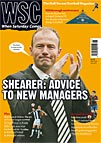 The experiment with goalline officials shows UEFA is attempting to improve refereeing, even if it will never be perfect. Simon Hart reports
The experiment with goalline officials shows UEFA is attempting to improve refereeing, even if it will never be perfect. Simon Hart reports
“Football will remain, for the time being, a game for human beings… We will try to improve referees but you will never erase errors completely.” So said FIFA president Sepp Blatter on his March visit to Manchester, not long after the International Football Association Board had confirmed that tests with an extra official behind each goalline would continue. The “five-man” experiment began following FIFA’s rejection of video technology last year and the next testing ground may be a professional league next season – both the Italian and French authorities have already offered their assistance.
But how do you “improve referees” – as Blatter put it – in the meantime? At UEFA’s annual mid-season review for Europe’s leading referees in February, it was clear that constant efforts are being made to do just that. This was an intriguing insight into the standards required of the men who, it is estimated, must make some 250 decisions while covering 12 kilometres of football pitch over the course of a 90-minute match.
To err may be human but preferably not during a major game. As they heard during one workshop at the meeting in Benalmadena, Spain: “You can have 99 per cent of decisions correct but if you make one crucial mistake, all the good things are forgotten.” “Vital judgements in the penalty area” was the theme and the referees sat reviewing video footage of the high-profile errors they were told to cut out – such as the injury-time penalty awarded to Liverpool’s Steven Gerrard against Atlético Madrid in the Champions League encounter at Anfield. According to Hugh Dallas, the Scottish former World Cup referee-turned-UEFA instructor, the keys to making the right judgements are concentration, courage and correct positioning. “We don’t hide that referees make mistakes,” he said. “What we have to do is analyse their position and why they made that mistake. Sometimes television shows 25 different angles where the referee has only one. When a referee calls his decision wrong, it is generally because he is in the wrong position, which is why we try to make sure their fitness is top-class so they have the energy and resources to get into the right positions.”
There are other factors: gaining a strong tactical understanding helps a referee improve their awareness of where to be, while good teamwork with their assistants should cover any areas beyond their line of vision (though sometimes, it turned out, bad decisions followed bad advice from the flag-wavers). The exacting demands were apparent when each new UEFA referee attending the parallel introductory course (among them Stuart Attwell, the baby at 26) underwent individual medical, physical and mental examinations prior to taking the FIFA fitness test – and later headed for home with a heart-rate monitor and an individually tailored fitness programme.
UEFA’s mantra is uniformity but this is not always easy with people who, beneath the matching tracksuits, are pulled from all corners of the continent. From a Russian who must tackle jet lag when flying nine hours to referee games in Vladivostok, to a Welshman who seldom sees crowds of more than a few hundred, via a Spaniard who revealed how much he admired the flow of English football compared with the regular interruptions and staccato rhythms of La Liga.
To encourage consistency, the course focused on specific concerns – and how the referees must deal with them. High tackles were a particular worry . “We want to make sure the referees are very strong on tackles where two feet are off the ground with studs coming in, which can endanger the safety of the players,” said Dallas. UEFA also preached zero-tolerance towards players waving imaginary cards to get opponents booked, and towards holding and pushing in the penalty box too. A clampdown is already under way here – with over a dozen penalties awarded in the Champions League over the last 18 months – and Dallas believes goalline officials would help further. The Scot oversaw UEFA’s testing at its Under-19 Championship qualifiers last autumn and said: “Because the players in the penalty area were well aware there was an extra pair of eyes looking at them for holding and pushing, we didn’t have any major incidents.”
There remain questions to resolve regarding the extra officials, including on which side of the goal they should stand – which could impact on the referee’s positioning – and how all five arbiters can communicate quickly without slowing the game’s flow. Yet within refereeing there are open minds towards “anything that makes us more accurate”, as one leading official put it.
Watching footage of the melee between Chelsea and Manchester United players at last May’s Champions League final, who could begrudge a referee two extra pairs of eyes? So much for matches between English clubs once virtually refereeing themselves, as one retired official recollected.
Blatter was correct when he said match officials would continue making mistakes yet there is no denying the care they take to try and get it right. Nor their passion for the game – after all, how else do you explain the fact Howard Webb has followed Rotherham United to 80 different league grounds?
From WSC 267 May 2009